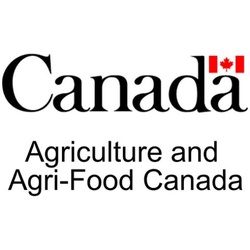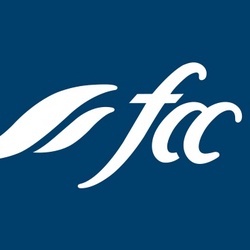
Local Food Infrastructure Fund – Small Scale Projects
At a glance
- Maximum amount : 500,000 $
- Minimum amount : 25,000 $
- Up to 100% of project cost
- Open Date : January 13, 2025
- Closing date : March 1, 2025
- Agriculture, forestry, fishing and hunting
- Canada
- Non-profit
- Public or Parapublic institution
- All revenue ranges
- All organization sizes
- Indigenous Peoples
- Other Racialized Persons
- Black Canadians
- 2SLGBTQI+
- Social Services
- Economic, Social and Community Development
- Diversity and Inclusion
- Indigenous peoples
- LGBTQ+ community
- Rural / Remote communities
- Low-income individuals / families
- Minority groups
- All structures
- Local
- Municipal
- Regional
- Provincial
- National
Overview
Your not-for-profit organization could get funding to improve access to safe, healthy and culturally-diverse food and to promote environmentally sustainable food systems while supporting local communities.
Activities funded
The Local Food Infrastructure Fund supports projects that enhance community food security by improving access to and availability of local, nutritious, and culturally appropriate food. Eligible projects focus on infrastructure and equipment related to food production for equity-deserving groups.
- Purchase and installation of equipment to produce food, such as growing and harvesting tools.
- Installation of infrastructure, such as community gardens with irrigation systems.
- Setting up greenhouses equipped with sustainable technologies like solar panels.
- Establishment of food forests aimed at local food production.
- Purchase and installation of equipment for processing, distributing, storing, and transporting food, contingent upon the inclusion of a food production element.
Eligibility
To be eligible for this grant, organizations must meet several defined criteria focused on organizational type, mission, and operations.
- The organization must be either an Indigenous group (First Nation, Métis, Inuit) or a not-for-profit organization with a mandate to provide community food services. Eligible entities include Indigenous communities/governments, not-for-profit associations, corporations, and municipal administrations.
- Organizations must be committed to fostering equity, diversity, and inclusion, ensuring all individuals, particularly from equity-deserving groups, have equal access to opportunities and resources.
- The organization must have been in operation as a legal entity for at least 2 years by the application submission date, capable of entering into legally binding agreements.
- Schools, school boards, academic institutions, for-profit entities, and unincorporated entities are not eligible.
Who is eligible?
This grant is designed for organizations in Canada focusing on enhancing community food security through locally-driven projects. It aims to benefit particularly Indigenous and Black communities and promote equity, diversity, and inclusion.
- Indigenous organizations: First Nation, Inuit, or Métis communities and their respective governments, associations, or non-profit organizations.
- Not-for-profit entities with a mandate or mission to provide community food services, including local community, charitable or voluntary organizations.
- Municipal administrations with a focus on promoting community food security.
- Organizations that promote equity, diversity, and inclusion by ensuring access to opportunities for marginalized groups, such as Two-Spirit, LGBTQI+, Black, and Indigenous communities.
- Organizations incorporated as a legal entity for at least 2 years and capable of entering legally binding agreements.
Who is not eligible
This grant excludes certain companies and industries due to their status or main activity. The restrictions aim to ensure that funds are utilized to support community food security initiatives.
- Schools, school boards, as well as academic and educational institutions.
- For-profit entities.
- Unincorporated entities.
- Organizations that have signed a funding agreement with the LFIF since September 2021.
- Applications submitted by a third party, such as consultants applying on behalf of an eligible applicant.
Eligible expenses
The grant is intended to enhance community food security by supporting projects focused on food production for equity-deserving groups. These initiatives emphasize increasing access to nutritious and culturally appropriate local food.
- Building a community garden with an irrigation system.
- Installing a greenhouse with solar panels.
- Establishing a food forest.
- Purchase and installation of equipment to grow and/or harvest food.
- Purchase and installation of equipment to process, distribute, store, and/or transport food, when linked to food production.
Eligible geographic areas
This grant can be accessed by eligible organizations across Canada. The funding is aimed at supporting local projects that focus on community food security.
- Organizations located anywhere within Canada.
Selection criteria
The evaluation and selection of projects for this grant are based on specific criteria focusing on the project's relevance, management capacity, community impact, expected results, and financial clarity to ensure alignment with the LFIF's objectives.
- Relevance of the project for the organization: The requested infrastructure/equipment must be directly related to increasing the organization's capacity to produce and/or complement food production through processing, storing, and/or distribution.
- Ability to manage projects and achieve results: The applicant must demonstrate a reasonable project timeline and a clear risk mitigation strategy.
- Impact on the community: Evidence must be provided on how the proposed infrastructure/equipment will address local food security issues and increase access to local, nutritious, and culturally appropriate food for equity-deserving groups.
- Expected results: The project must show increased levels of service and demonstrate additional benefits in the application and Table of Metrics.
- Financial information: Budget details must be clear, reasonable, and well-documented with amounts matching provided quotes.
How to apply
Prepare Application Ensure eligibility by reviewing the program criteria.
- Gather necessary documents: Certificate of Incorporation, Detailed Project Budget, Table of Metrics, and Quotes for cost items over $5,000, among others.
- Download the relevant forms to your computer from the AAFC portal.
Access Program Information Choose a secure sign-in method on the AAFC portal.
Complete Application Form Start a new application by selecting Local Food Infrastructure Fund – Small Scale Projects.
- Enter the Project title and save your progress.
- Complete the online application form with all necessary details.
Attach Required Documents Attach all required documents, such as incorporation documents, budget, quotes, and relevant letters.
Submit Application Review the application and all attachments for accuracy and completeness.
Confirmation of Submission Receive an automated confirmation email confirming receipt of the application.
Additional information
Here are additional relevant details for this grant:
- Requests for extensions beyond the closing deadline for application submissions will not be accepted, stressing the importance of timely application.
- All funding decisions are influenced by criteria like priority populations, geographic distribution, and the diversity of projects in order to ensure equitable support.
- If an applicant organization has various branches or departments, only one application can be submitted per legal entity.
- Quebec-based applicants must ensure compliance with the Province of Quebec's M-30 legislation, including obtaining necessary authorizations.
- Ownership of eligible equipment funded by the grant must be maintained for at least two years following the project completion date.
Contacts
Frequently Asked Questions about the Local Food Infrastructure Fund – Small Scale Projects Program
What is the Local Food Infrastructure Fund – Small Scale Projects?
How much funding can be received?
What is the deadline to apply?
Who is eligible for the Local Food Infrastructure Fund – Small Scale Projects program?
What expenses are eligible under Local Food Infrastructure Fund – Small Scale Projects?
Who can I contact for more information about the Local Food Infrastructure Fund – Small Scale Projects?
Where is the Local Food Infrastructure Fund – Small Scale Projects available?
More programs like this

AgriScience Program – Clusters
Agriculture and Agri-Food Canada (AAFC)
ISED — Artificial intelligence (AI)
Innovation, Science and Economic Development Canada (ISED)
AgriCompetitiveness Program
Agriculture and Agri-Food Canada (AAFC)
Canada Pavilion Program
Agriculture and Agri-Food Canada (AAFC)
Farm Equipment Financing
Farm Credit Canada (FCC)
Women Entrepreneur Program
Farm Credit Canada (FCC)
AgriAssurance Program – National Industry Association Component
Agriculture and Agri-Food Canada (AAFC)
African Swine Fever Industry Preparedness Program (ASFIPP) - Welfare Slaughter and Disposal Stream
Agriculture and Agri-Food Canada (AAFC)
AgriRisk Initiatives - Research and Development Contribution Funding
Agriculture and Agri-Food Canada (AAFC)